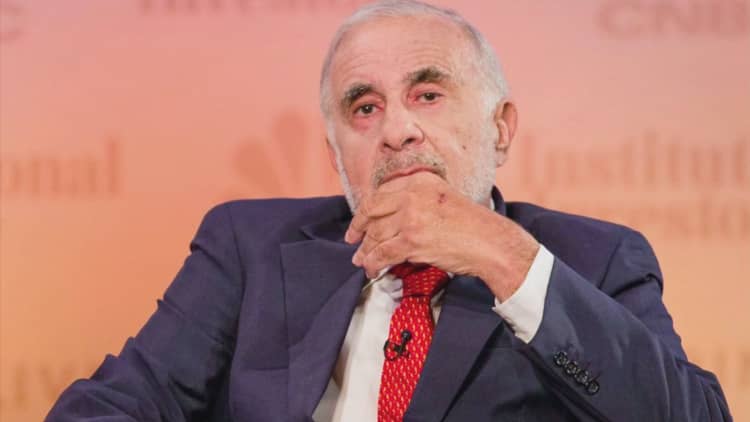
Carl C. Icahn, the billionaire activist investor, was once known for causing consternation in the boardroom. Now, he is the source of much hand-wringing on Capitol Hill.
On Tuesday, eight Democratic senators led by Elizabeth Warren of Massachusetts called for a federal investigation into whether Mr. Icahn violated laws against insider trading and market manipulation in his role as a special adviser to President Trump.
In a letter addressed to current and acting heads of the Commodities Futures Trading Commission, the Securities and Exchange Commission and the Environmental Protection Agency, the senators raised questions about Mr. Icahn's majority investment in CVR Energy, an oil refiner.
More from The New York Times:
Investor Carl Icahn dragged into gambler's insider trading trial
Icahn raises ethics flags with dual roles as investor and Trump adviser
A victory for Trump is a victory for big-name traders
At issue is whether CVR — a company that Mr. Icahn controls — made decisions based on nonpublic information it had access to
For most of his six-decade career, Mr. Icahn, 81, has been known as an outsider. He has gained a reputation as an aggressive critic of corporate chieftains, often waging bare-knuckled battles against companies in efforts to bully management into certain changes. Mr. Trump, a longtime friend and business associate, has lauded Mr. Icahn as a "brilliant negotiator."
In their letter, the senators contend that Mr. Icahn used his position as an adviser to Mr. Trump to influence policy that would benefit CVR. They point to a Reuters report that CVR chose not to buy credits in the months leading up to and after Mr. Trump's election,
"Mr. Icahn 'made a massive bet in 2016' that the price of the renewable fuel credits would drop," the letter from the senators reads. "He then — as an unpaid adviser to President Trump — recommended personnel and policies that
The senators contend that Mr. Icahn was betting that the price of the credits would plunge thanks to his influence over the Trump administration's choice for a new head of the E.P.A.
As the Trump administration began that search, it enlisted the help of Mr. Icahn, who helped to interview and recommend Scott Pruitt, a known critic of the renewable fuel credit program.
When Mr. Trump announced the nomination of Mr. Pruitt, the price of renewable credits fell 20 percent, the senators said. The price fell further following news that Mr. Icahn had presented the White House with recommendations on how to modify the renewable fuel credit program.
Mr. Icahn's actions and his proximity to future policy decisions helped inform CVR's decisions and save the company $50 million, the senators contend. But, they wrote, "We have no way of knowing at this time whether Mr. Icahn made any of his renewable fuel credit trades or decisions about trades based on material, nonpublic information or otherwise manipulated the market."
Since Mr. Trump won the election, CVR shares have gained nearly 75 percent, marking a major windfall for Mr. Icahn over that period. Mr. Icahn has been an investor in the company since
It's not the first time that Mr. Icahn has taken heat for his new role as an adviser to Mr. Trump.
In February, Senator Sheldon Whitehouse, Democrat of Rhode Island, together with six other Senate Democrats sent a letter to Donald F. McGahn II, the White House counsel, seeking responses to a series of questions about whether Mr. Icahn's role would be official and whether he could work to change regulations to benefit his own investments.
Icahn Enterprise, his firm, has several large investments that are affected by E.P.A. regulations, and the senators requested that the White House put in place safeguards to ensure that Mr. Icahn would not have access to information that is not public and could be used to make profitable trades.
Neither Mr. McGahn nor the White House has responded to the letter, which was sent on Feb. 13, according to a representative of Mr. Whitehouse. In March, the same senators followed up with a letter to Mr. Icahn, the Office of Government Ethics and the Justice Department to complain about Mr. Icahn's role as both investor and adviser.
In a four-page letter sent on March 27, they wrote: "Were the shoe on the other foot, Republicans would be having fits about any Obama relationship like this."

